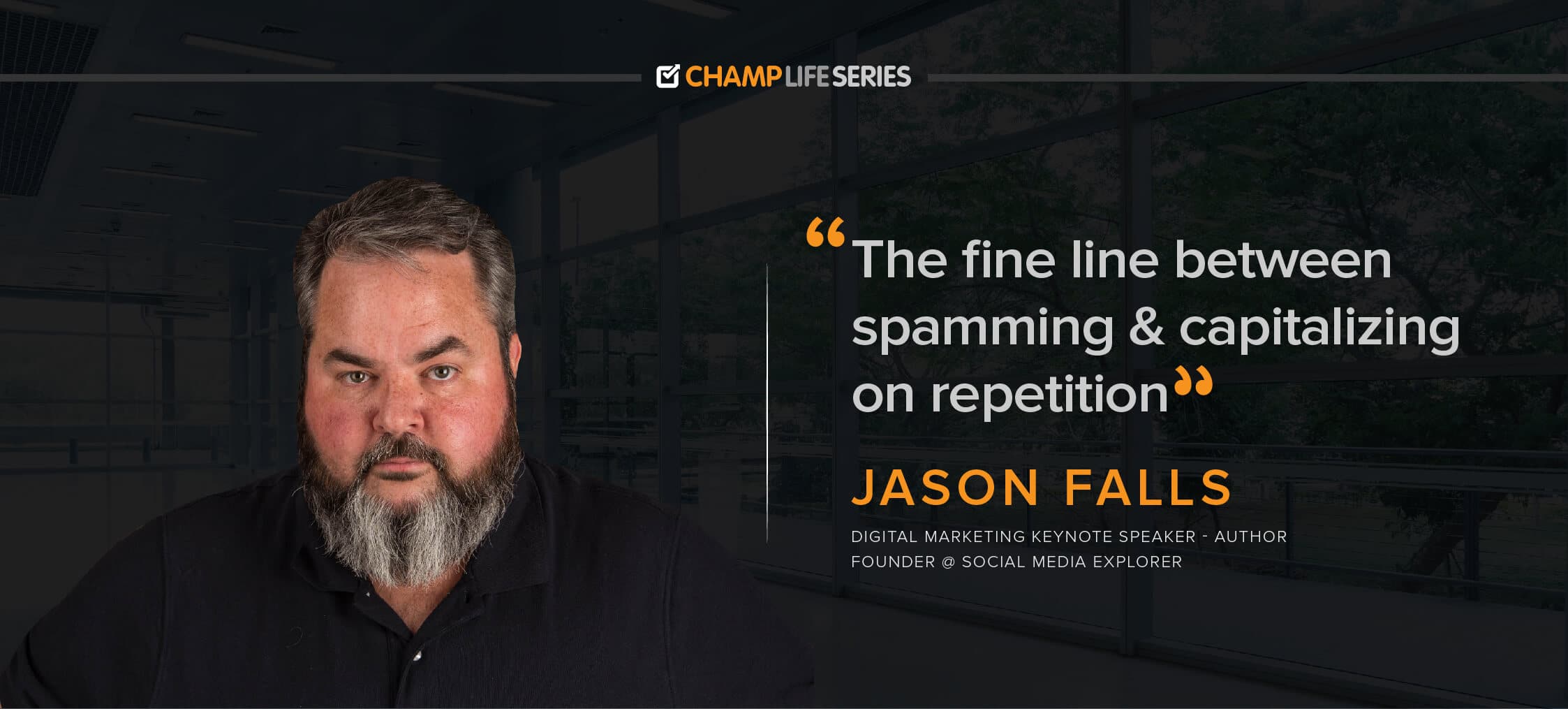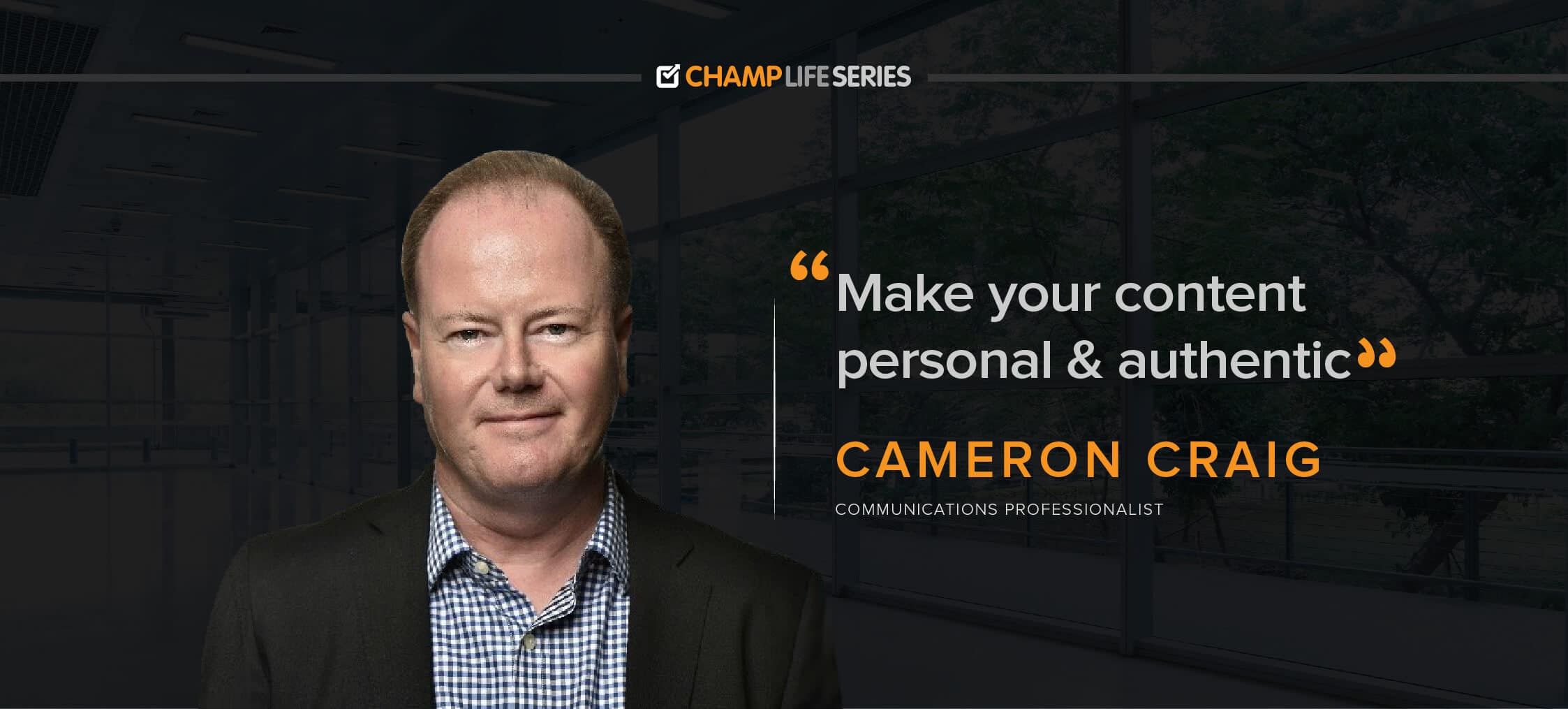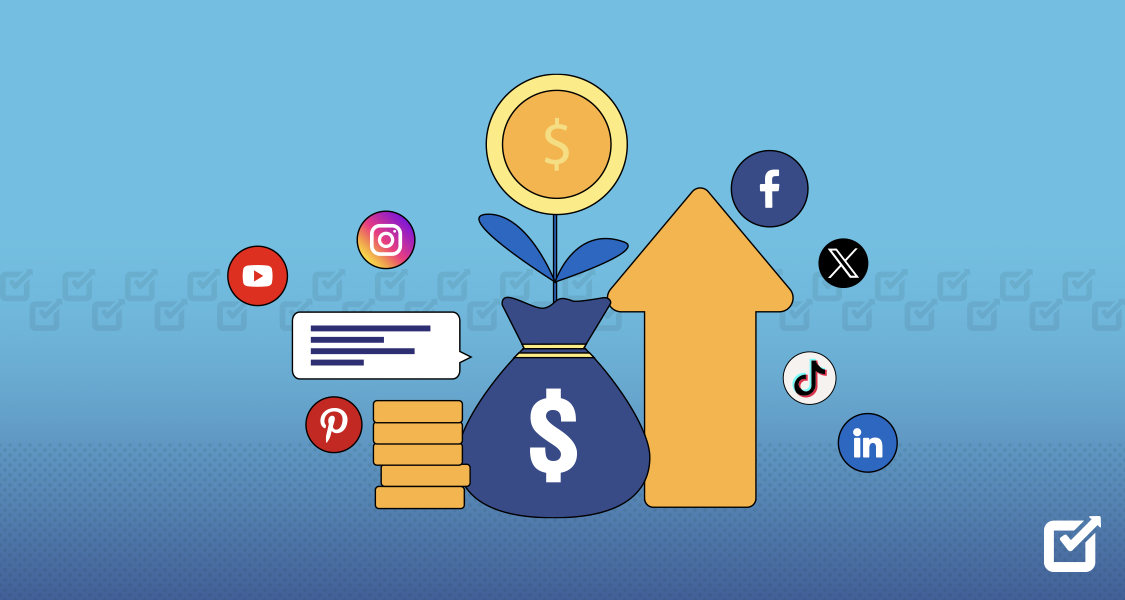When it comes to Jason Falls, there’s no business-related problem that can’t be tackled. With a constantly growing list of clients comprising of some of the biggest Multinational Corporations known today, the man never ceases to amaze the world with his creative mind exploding with ideas and strategies that can help any business ascend out of the mess of complicated obstacles and reinvigorate its essence.
In conversation with Social Champ, Jason revealed some really insightful thoughts about the new era of digital marketing and shared useful growth hacking tips to transform a brand for all the budding marketers and entrepreneurs out there!
Social Champ: Hi Jason How are you? It’s pleasure to have you on board with Social Champ. Could you briefly tell us how you started your career and became a social media celebrity? What motivated you to become such an exceptional social media blogger and influencer?
Jason : Thanks for having me! I actually have two careers. One — as a sports journalist and public relations professional — which I followed for 15 years, then the one everyone sees now — that of a digital marketing strategist. Out of high school, I was just a sports broadcasting geek. I wanted to be on ESPN and work in sports for a living. I wound up as a network radio producer, then moved into college athletics P.R. for about 12 years. When my son was born, I transitioned into mainstream marketing and landed at an ad agency where I started asking why we weren’t talking to our clients about social media.
My CEO at the time told me, “If you can sell it, you can do it.” So I started pitching ideas to clients. Several said “yes” and I started building social media programs. One client was in a regulated industry (alcohol, wine and spirits) and it was 2007-2008 before most brands were even toeing the waters of social media. So I started to get asked to speak at conferences about regulated industries in social and it sort of snowballed from there. I was in the right place at the right time and was smart enough in my advice that I built a modest audience.
And I’d say I wasn’t motivated to become a blogger or influencer. I was just exploring the new world of social media and trying to share my own knowledge and experiences with others. I guess I did so very early on and earned some of that early adopter status that makes me sound more impressive than I really am.
Social Champ: “Writing is one way to express yourself. If you’re stuck there, turn to another way. Sing along with a couple of songs you enjoy”. You quoted these words in your blog How to Jump-start Your Brain For Better Content Marketing while mentioning your interests in learning to play guitar and initiate a drumming-career. Do you play guitar? What else do you do in your leisure time?
Jason: I’m slowing trying to learn how to play bass guitar and I’ve always been an amateur drummer, even though I haven’t had my own drum set since high school. I have decent rhythm and enjoy percussion and bass, so that’s where my ear goes when listening to music. But my leisure time is mostly full of being a dad and watching sports. If I have an evening to myself, I usually play around on my guitar and binge watch mysteries and action/adventure shows on Netflix. I’m also quite a trivia buff and enjoy playing all sorts of online, offline and bar trivia.
Social Champ: You are a motivational speaker too! You have spoken in front of a big audience quite a lot of times. What is your favorite topic to speak on which excites you while talking to your audience?
Jason: In my heart of hearts, I’m a comedian. I don’t claim to be one professionally because I don’t do open mic nights or standup comedy in clubs. But I incorporate humor into my talks and try to entertain as much as inform when I do speak. So my favorite talks are the end of the day or even after dinner talks where I can take some liberties with the topic and be a little blue or off-color. Walking that fine line between being informative and entertaining is a balancing act I really enjoy. And the topic can be anything … so long as I can make it funny.
Social Champ: Most of the budding marketers begin their campaigns with the ‘spamming-strategy’. In your opinion, is spamming useful and worthwhile to introduce your product/service on social media?
Jason: By definition, spamming is bad. But there’s a fine line between spamming — constantly pestering someone with the same message over and over when they don’t want to see it — and capitalizing on repetition to build awareness or persuasion. As long as the audience hasn’t explicitly told you they don’t want the message, it isn’t spam to me. But you have to be careful. I can’t just send a cold email to someone and expect them to think it’s not spam. They didn’t ask me to email them. But if through advertising or multiple touch points of marketing (social, email, in-person, etc.) I can deliver a consistent message that reinforces each one before and after it, then I’m surrounding that consumer with an idea that may convince them to try or even buy my product. As long as you aren’t interruptive to the point of annoying them, I see no reason not to message that way.
Social Champ: Jason, you have occasionally talked about traditional and social media marketing. How important do you think the latter has become in today’s world? How do you suggest the social media strategies can become effective when the traditional marketing is not enough?
Jason: Social media marketing is important, but I’ve never said it was the end-all, be-all to marketing like some. Traditional advertising and marketing is powerful for doing things like driving awareness, delivering persuasive messages to audiences and all of the mass marketing mechanisms of reaching a lot of people fast. Social media brings a more personal interaction to the table to complement or supplement those approaches, empowering the consumer to think about the brand in a more personal, even intimate way (if social is done right).
Social’s personal nature is therefore more suitable for customer service, customer retention and the like, rather than customer acquisition — though it can be sued for that. A good marketing effort integrates both the traditional and social/more modern to strike a balance of driving great awareness and acquisition, but also complementing it with customer retention and relationship building. Hitting that balance is the great marketing challenge of today.
Social Champ: You started your book No Bullshit Social Media with the title ‘Change or Die’. How do you suggest small businesses, who cannot afford to put high stakes, to cope with the changing ambience while strongly positioning their brand in the minds of the audience?
Jason: Social media actually provides the opportunity for small businesses to change without having to spend a lot of money. Just turning on a Facebook page and interacting with customers can bring a small business into the digital and consumer-driven era and technically it doesn’t cost anything other than some of your time. Think about that for a second: To provide your audience with a place they can ask questions, share ideas, interact with other customers and get responses from your small business 20 years ago, you would have had to invite them all to come to your store in person or spent hundreds of thousands of dollars on a fancy website they wouldn’t all know how to use.
Now you can set up a Facebook page in 10 minutes, invite everyone to like it via email in another 2-3, and in 15 minutes or less provide customers with an engaging, interpersonal experience with your company for zero dollars of investment. That’s pretty damn empowering if you ask me.
Social Champ: You seem to be an avid Twitter user, with a great fan-following, of course. So this might interest you. Do you know about the Retweet feature of Social Champ, through which you can automate the repetition of your tweets? How important do you think is the role of such automation tools?
Jason: I’m still a bit of a purist on automation. In fact, I’ve written and given talks about the way to approach marketing automation with humanity — not losing the personal, human touch. But I do see its merits and use automation to a degree with how I share content on social networks and such.
As I’ve not yet really test-driven Social Champ, I wasn’t aware of the Retweet feature, but I can certainly see where repeating your Tweets — especially those that promote your content or the content you choose to share and have some evergreen value — can be powerful. It’s an interesting feature to test and see if it helps drive more traffic and interaction without it being impersonal. I’m looking forward to trying it out !
Related: Learn how to keep everyone hooked to your Twitter account
Social Champ: ‘Every great achiever is inspired by a great mentor’. Who were, or are, your mentors or your inspiration that you look up to?
Jason: Within the industry, I’ve had the great fortune to get to know and become friends with a lot of people I look up to and learn from. Chris Brogan, David Meerman Scott, Todd Defren, Jeremy Pepper and Geoff Livingston are all notable people from my early days of learning about social marketing and public relations beyond my college sport niche that I admire and have gotten to know a bit over the years.
I love the workman like John Jantsch to death. Jay Baer is another true thought leader whose insights and output are amazing. And I have had a great time exchanging ideas with some super smart people like Ann Handley, Amber Naslund, Ike Pigott, Marshall Kirkpatrick, Mack Collier and tons, tons more. But I think the sort of professional mentor I always think of when I think of bosses and such who shaped the way I work I think of Jake Bell, who was my athletic director when I handled communications at Georgetown College back in the late 1990s.
Jake was an old football coach and basketball official who was as buttoned up and organized as anyone I knew. But he was a great empower-er. He trusted you to do your job and respected your opinion and input. He was the boss, but he was a collaborator, not a dictator. That stuck with me.
Related: Mack Collier’s tips for effective content marketing
Social Champ: Jason, you discussed the importance of incorporating the needs of the millennials in How to Create a Millennial-Friendly Organization. In your view, what can this new breed of young social media contribute to a business, particularly through social media?
Jason: I think Millennials get a bad wrap. They’re the first generation to be truly empowered by their parents rather than shoved in boxes and told how to behave at all times. That brings with it a different sense of self, of work, of independence and confidence. No two generations are truly going to understand each other and gel well, so what we’re seeing now is no different than what Boomers saw in dealing with Gen-X.
I think the more confident, empowered generation of millennials will contribute a new level of energy and competency for companies at earlier career stages than previous generations. They won’t feel like they can’t upset the apple cart if they see the apple cart growing stale. That energy needs to be harvested and valued, not squashed.
The technology piece and social media is just a mechanism. It’s how they think, act and work that matters.
Social Champ: Okay Jason, let’s wrap it up with a rapid-fire!
| # | Question | Jason’s Answer |
|---|---|---|
| 1 | Coffee or tea? | Tea. Hot. With milk and sugar. Every morning. |
| 2 | Sneakers or loafers? | Depends on who you’re going to see. But sneakers are preferred. |
| 3 | Twitter or Facebook? | Facebook. Far more engaging. |
| 4 | Snapchat or Instagram? | Instagram. I still don’t care for Snapchat. It’s fine. Just don’t care for it. |
| 5 | Content or Infographic? | Content. I’m a writer. I can write the copy for your infographic, but I’d rather read than glance. |
Thank You so much Jason for your time! Social Champ wishes you all the best for your future and anticipates many more insightful articles from you.






